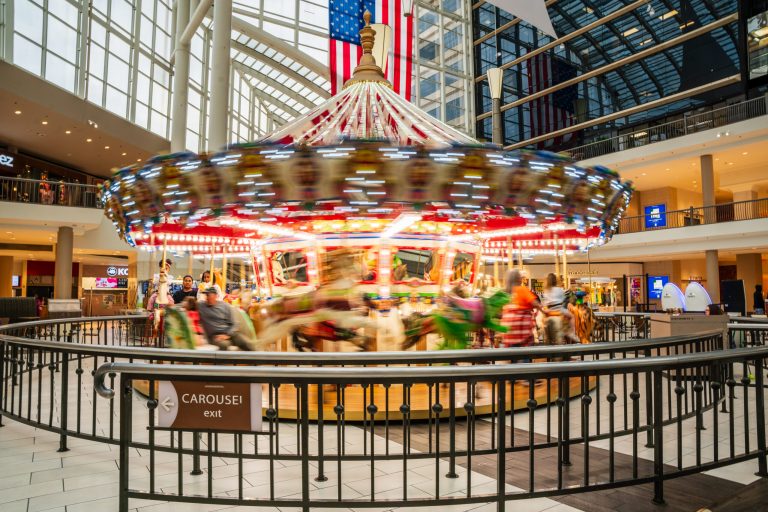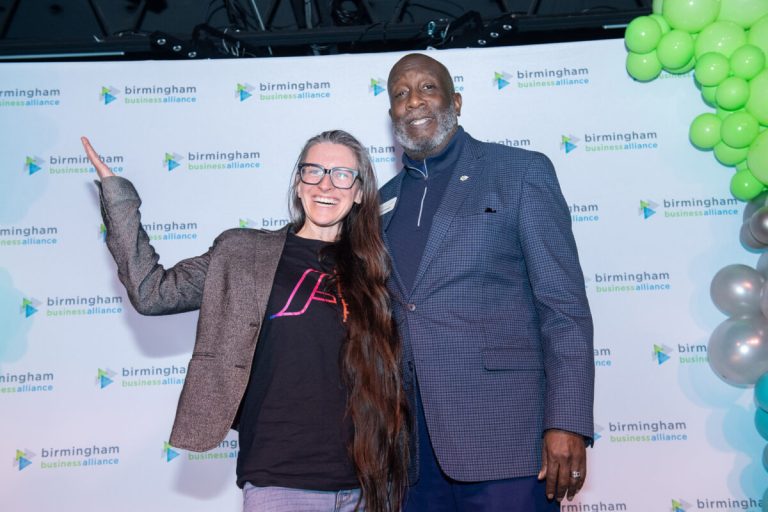6 ways the shared economy trend is growing in Birmingham, including transportation and free stores
Reading time: 6 minutes

You mow your neighbor’s lawn; they make you dinner or fix your deck. You borrow a step ladder instead of buying one. Shared economy is not a new concept. It saves money and is less wasteful—that’s tried and true. However, we’re seeing renewed interest in shared economy principles and new applications across Birmingham. Here’s how.
Do you know of more examples of the shared economy in Birmingham? I’d love to hear from you at terri@bhamnow.com.
1. Transportation

The transportation sector is perhaps the most visible example of the growing shared economy in Birmingham. Technology powers these initiatives and business models by making it easier to coordinate sharing on a large scale.
“In the transportation sector, we’re experiencing a rapid evolution where shared economy is one of the driving forces. It’s gotten to be really expensive to own your own means of transportation. On average, a privately owned automobile costs about $6,000 annually. Things like Uber, Lyft and Zipcar, dockless bikes and scooters, all those things represent a means of saving people money.”
Darrell O’Quinn, Birmingham city councilor, District 5

Shared Economy Transportation In Birmingham
- Cars: Uber, Lyft, Zipcar and Moovmo (Learn more about Moovmo, a Birmingham-based startup for wheelchair-accessible ride sharing.)
- Electric scooters: Bird and Lime (This mode of shared transportation is not without controversy. Read about Lime vs. Bird here and the latest on Bird here.)
- Electric-assist bikes: Zyp BikeShare, an initiative of REV Birmingham with solar-powered docking stations (Here’s your how-to guide.)
In the future, the popularity of diversified modes of transportation in the shared economy could lead to more accessible roads. “Businesses and developers will begin accommodating for things other than just cars,” said David Fleming, president of REV Birmingham.
“We have a car-dominated environment, but there’s demand for alternatives to the automobile and allowing for different modes of transportation to share the same space. Zyp BikeShare demonstrates there is a demand for that for uses ranging from recreation to commuting to meetings around the city center. It has been a very visible demonstration of a market potential for alternative modes, shared space and shared mobility.”
David Fleming, president, REV Birmingham
2. Coworking Spaces

In recent years, options for coworking spaces in Birmingham have proliferated. This sector of the shared economy helps save fledgling business owners cash and share equipment and other resources.

Coworking Options In Birmingham
- Forge, office space at the Pizitz (Get the full story.)
- SocialVenture, office space, a REV Birmingham initiative
- WORX BHM, office space
- The Hub, office space
- MakeBHM, maker/creative space
- M2, maker/creative space (Get the full story.)
- The Annex Culinary Incubator, kitchen space (Get the full story.)
- Chef’s Workshop, kitchen space
- Or, order a coffee and scone and set up shop at one of these coffee shops and libraries with free wifi.
“One of the most expensive budget items for a business is space. … A benefit to shared work spaces is you hopefully get more affordable and flexible options and short-term leases with more attractive rates. You also get a sense of collaboration. A lot of people like to feel like they’re part of a community and not out there by themselves when they’re starting something. And there’s a benefit to that community around them in a shared space.”
David Fleming, president, REV Birmingham
3. Land Trusts

Residents of Birmingham’s historic Smithfield community are using shared economy to promote affordable housing and sustainability. How? Land trusts.
A land trust forms when “a community collaborates to purchase a piece of land so they can control the cost of living on that land in a more cooperative manner over a longer period of time.”
Darrell O’Quinn, Birmingham city councilor, District 5

Longtime resident Susan Diane Mitchell initiated the Dynamite Hill-Smithfield Community Land Trust in 2015. (Smithfield is known as Dynamite Hill for the number of bombing attacks during the civil rights era. The late Judge Helen Shores Lee grew up there.)
Dynamite Hill-Smithfield Community Land Trust Goals
- Permanently affordable housing
- Home ownership opportunities to low- and moderate-income families
- Community stewardship programs
- Sustainable urban agribusiness cooperatives
- Community education and resources
4. Free Stores

Last August, Bham Now told you about the free garage sale at Asbury United Methodist Church. Birmingham’s secular citizens participate in the local shared economy, too.
Birmingham’s first monthly Free Store came to Linn Park in downtown on Sept. 23, coinciding with the Birmingham chapter of Democratic Socialists of America’s monthly picnic, the Barbershop Coalitions’ free haircuts and Greater Birmingham Period’s distribution of feminine hygiene products.
The Free Store provides donated clothes, shoes, home goods and toiletries, as well as luxuries like art supplies and makeup, to anyone who needs or wants them. The idea is to keep unused items out of landfills while living “luxuriously on what falls through the cracks of consumerism.”
The next Free Store pop-up takes place Sunday, Oct. 28, at 1 p.m. at Linn Park. The Free Store is always taking donations. Text organizer Lillie Stubsten at 423-987-6410 to arrange a time to drop off your items.
5. Little Free Libraries And Pantries

For the past few years, Little Free Libraries have popped up all over Birmingham. The premise is simple. Provide a box, protected from the elements, and fill it with books. People can take a book or leave a book as they please. It’s the shared economy at the most grassroots level.
Little Free Pantries are a close cousin to Little Free Libraries in the shared economy. Instead of books, people take or leave nonperishable food and household items in sheltered boxes.
In 2017, WBRC reported on a Little Free Pantry in Cullman built by a boy scout troop. Birmingham City Councilor Darrell O’Quinn told Bham Now he’s seeing the trend in Crestwood and Southside.
Other food pantry resources in Birmingham include the Community Foodbank of West Alabama as well as these organizations.
6. Community Gardens

Learn about some of Birmingham’s public and community gardens here. Are you involved in a community garden project, or do you know of more examples of the shared economy in Birmingham? I’d love to hear from you at terri@bhamnow.com.



